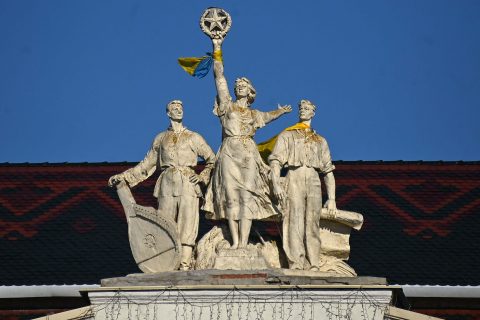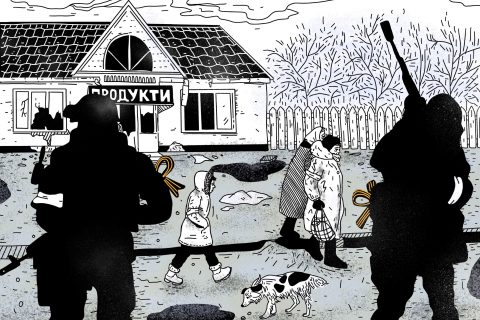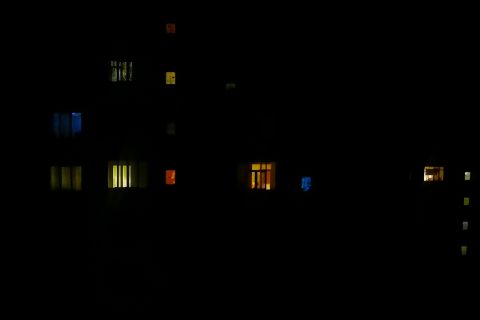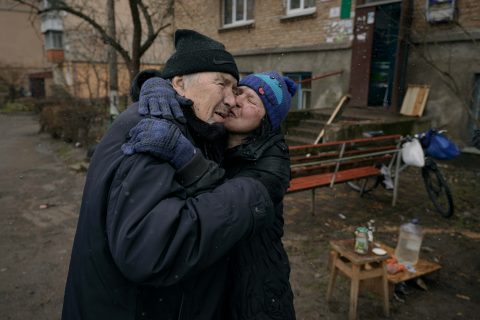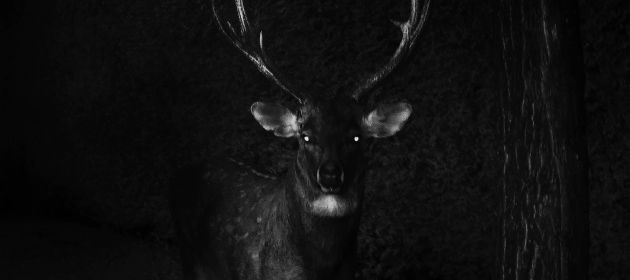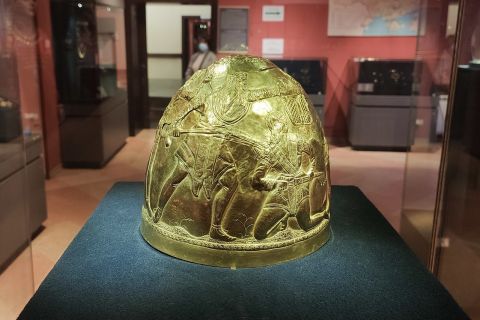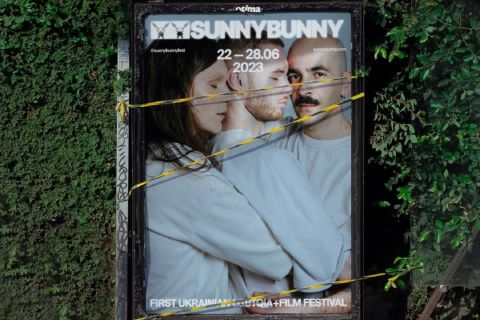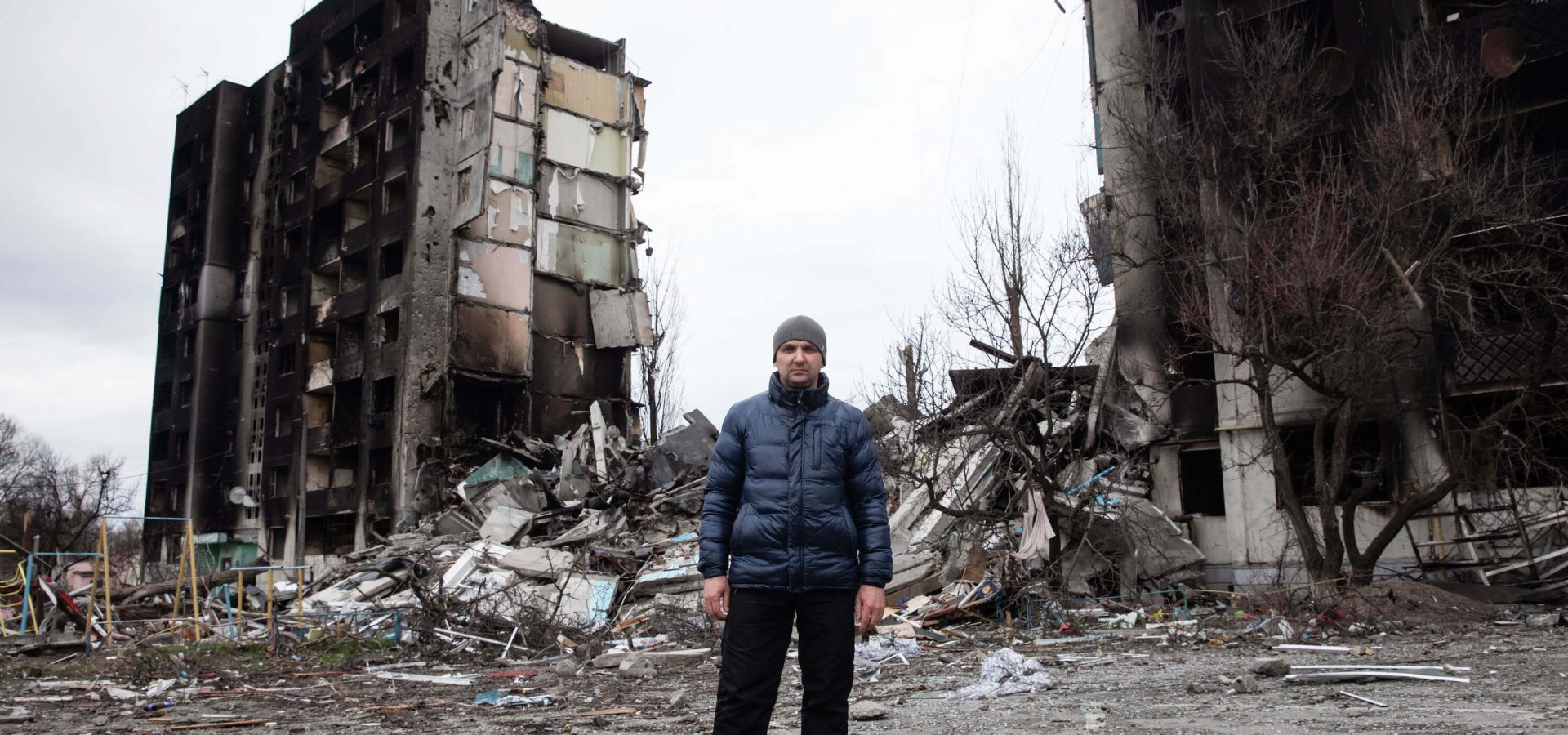
There Used to Be a Village: Report from Borodianka
Urban-type settlement Borodianka is a 50 km ride from Kyiv. Before the war, it was plainer than Bucha: one main street, one arts house, park, not a particularly rich private sector.
Central Street is the showcase of Borodianka. It is a place with almost every public administration building, several monuments and marshmallow-coloured flats. At the beginning of March the enemy’s artillery had entered the settlement, riding down the Central Street. The Russian army spent a month here in a constant battle with the Territorial Defence Forces. A retiree Anatoliy recalls, «Ours have kicked their ass, so that they were leaving in cars and burnt their ordnance just like that. Rashists didn’t know what to do with it.»
A grim scenery shows the scale of the battles: roads covered in ashes, with damaged vehicles and burnt down trucks and cars alongside; some of them were used as the barricades. Burning smell lingers in the air.
Bloody morning
Borodianka was erratically ruined. The private sector is mostly untouched, while the Central Street hasn’t a single building left. The apartment blocks at the end of the street are the most battered – the ones that are marshmallow-like. On the morning of March 2 the Russian planes started their bombardment. First strikes came on the building №359.
Dmytro takes what remained intact from his flat in an ash-smitten coat. At the moment when missiles hit the building, he was at home. After the first explosion, he ran to the stairwell and tried to go down the stairs to the ground floor. But it was too late.
«I heard it flying, whooshing. Hid behind the shaft, even managed to sit down. I felt some debris hitting my back. Then I took the door knocked down by the blast wave and used it as a shield. That’s how I survived. Almost everyone had left our building, so nobody died,» he says.
According to him, the Russians have started erratically bombing houses after the first clashes with the Territorial Defence. The Ukrainians fought them in mobile units, shooting them at «every corner». On realizing they fail, the Russians took to chaotic fusillade.
«They were busting here and there from the infantry, a day later there came up a plane.»
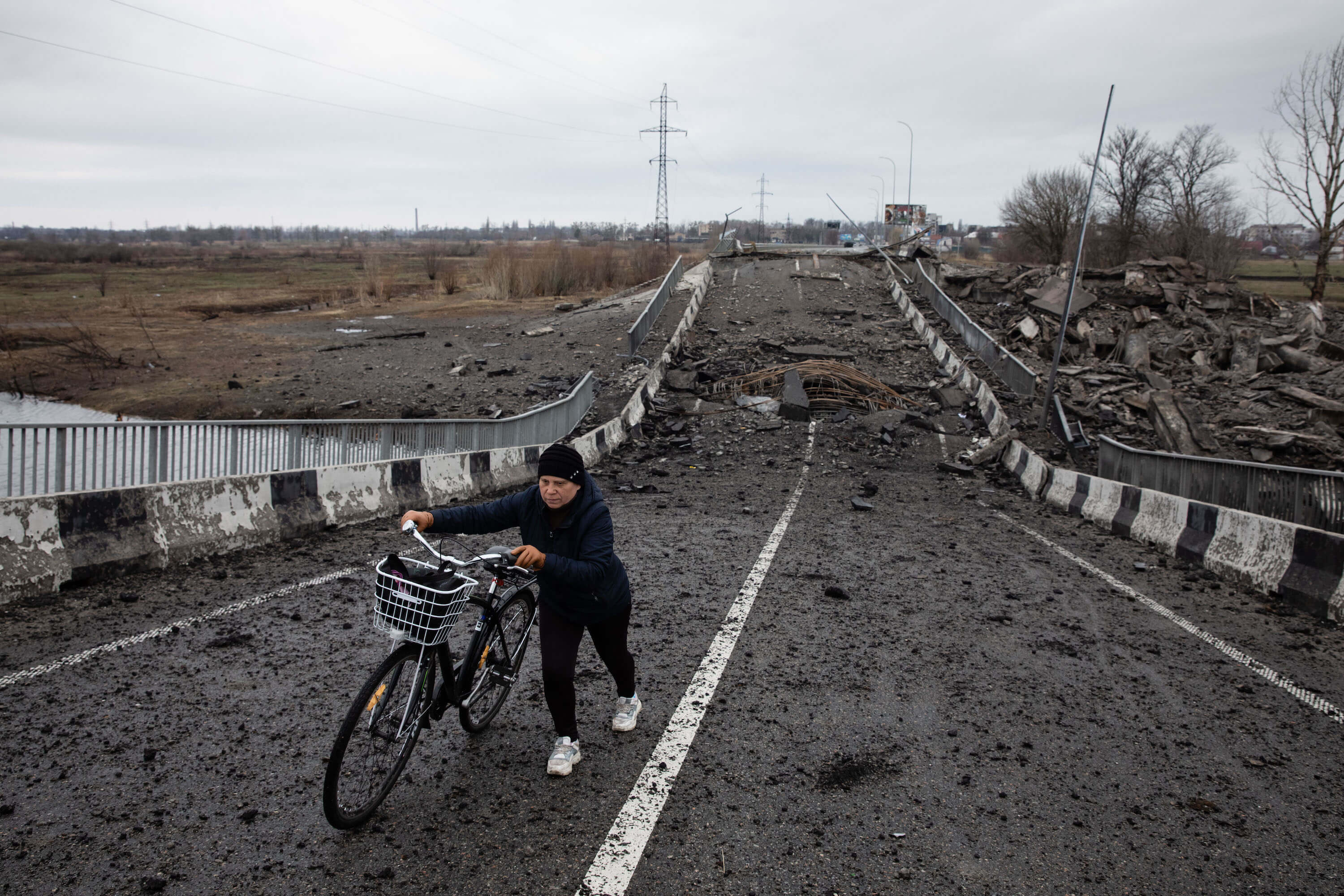
Identifying the means of shooting is easy. A huge gap in the wall means that was a tank-fire. If there is rubble instead of a house, it was bombarded by missiles. It is impossible to survive them. When hit directly, a panel house collapses like a house of cards. Everybody dies: people on the top floor as well as those on the ground one.
A huge gap in the wall means that was a tank-fire. If there is rubble instead of a house, it was bombarded by missiles.
A cellar in the building where Oleksandr Pinchuk used to live is now a mass grave. He assumes there are about 30 people now.
— How do you know? – I ask.
— What do you mean «how»? I was in that cellar for a few days. Got away on March 2. Didn’t mean to escape, but after the first blasts close to the circle (editor’s note: a round turn near the very entrance to Borodianka where there used to be a blockpost) a friend has called and persuaded me to move to his private sector. I set out right before the curfew. Around thirty people stayed in the cellar. And in the morning the building got hit, so they got trapped under the rubble.
— What about your flat?
— Destroyed. I even left my papers there. Now I am a hobo.
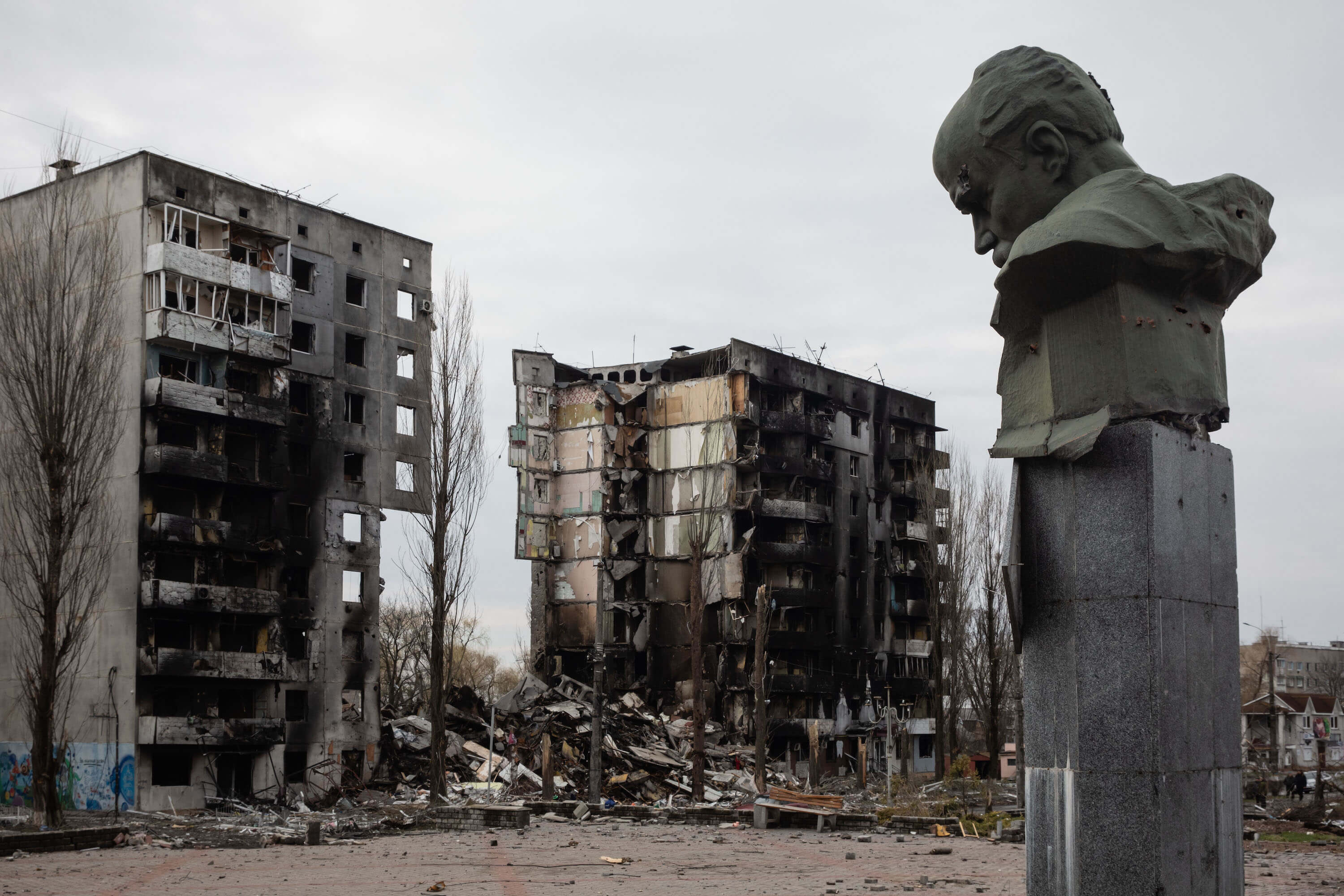
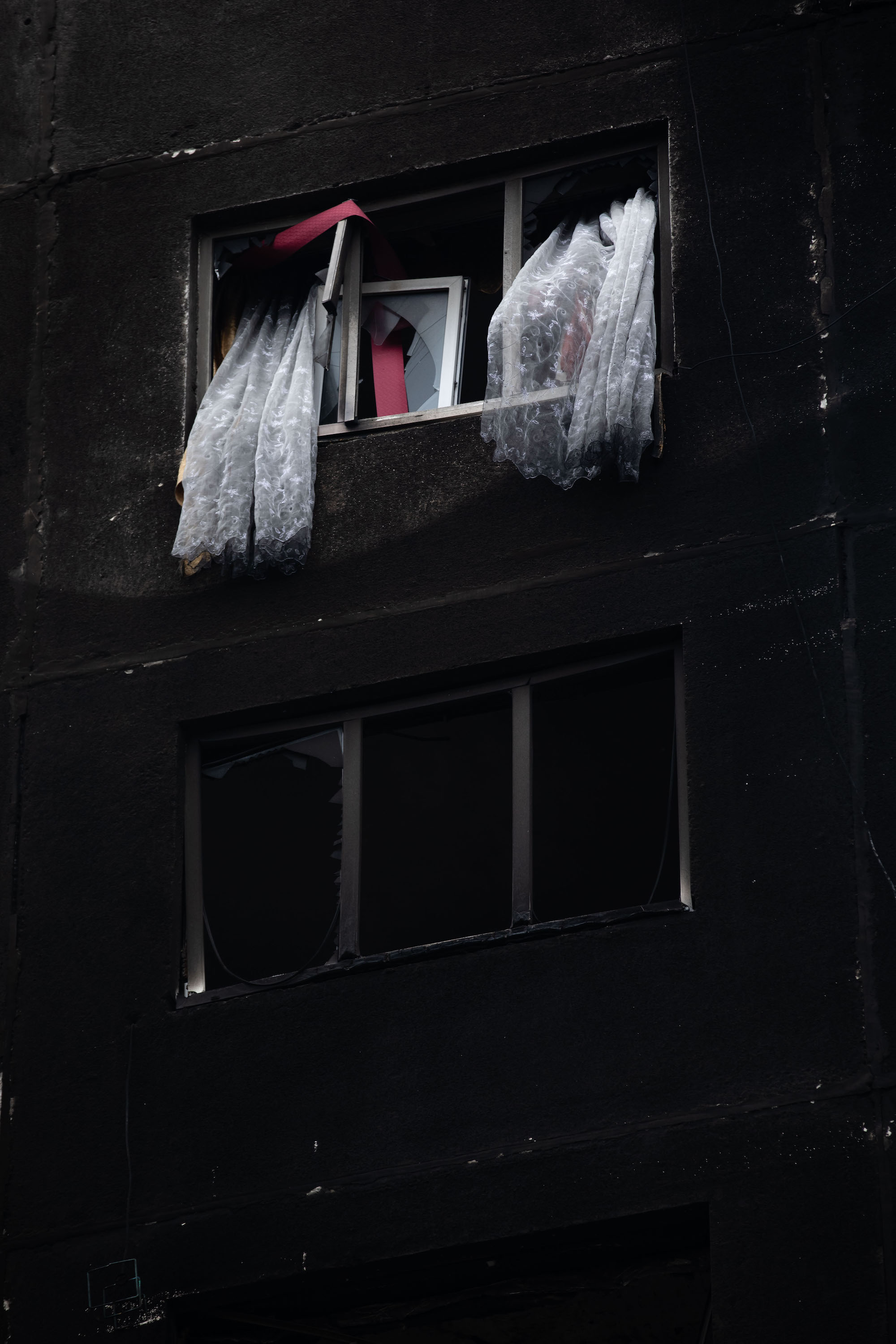
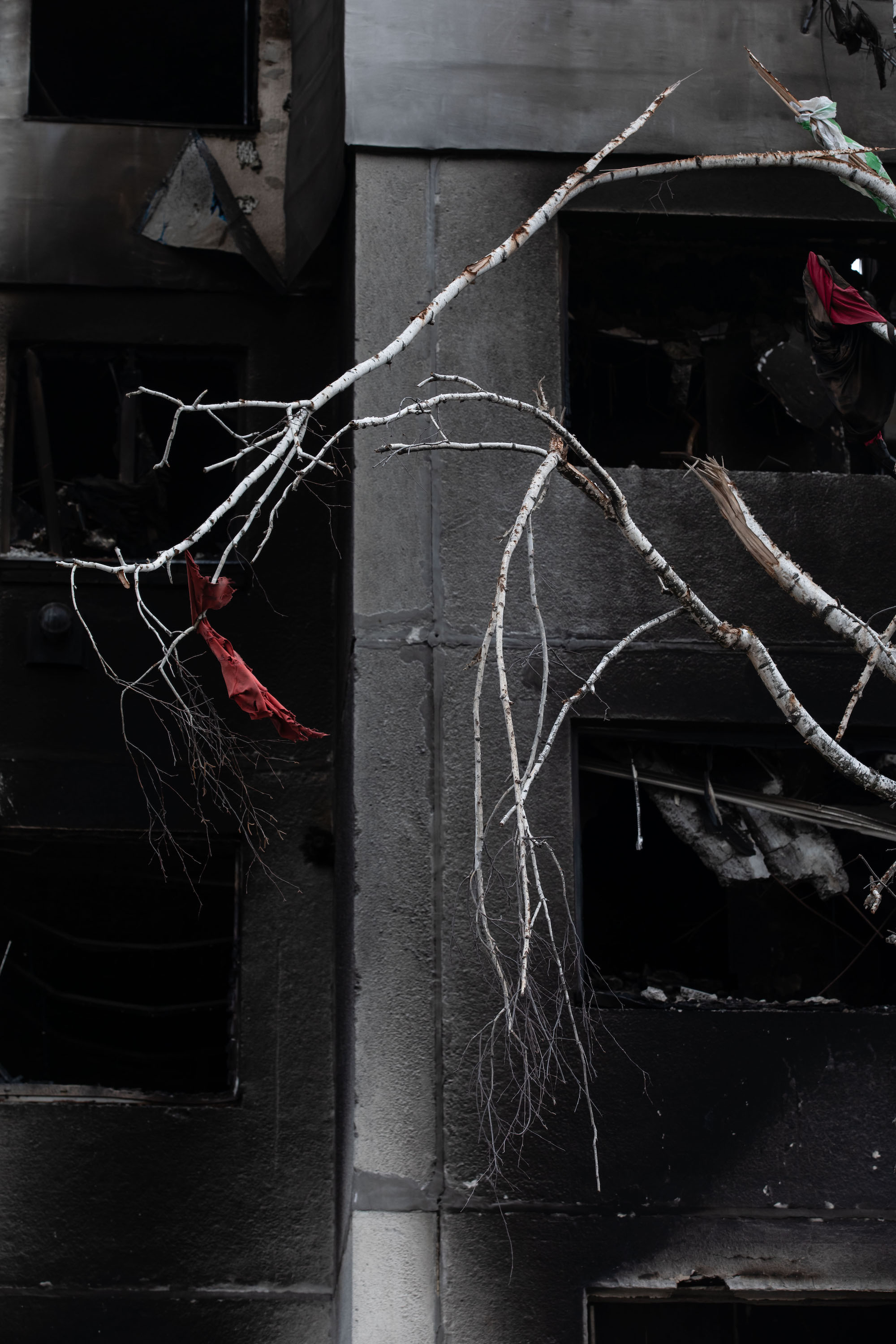
No walls
Two trucks stay near the entrance to the half-destroyed house. A driver is smoking nearby in silence. Several men are taking the disassembled furniture and stove out of the flat in haste. On seeing me, one of them cautiously explains:
— We help the missus to save what is left.
— And is it safe to go in there? — I ask.
— Who cares? — one of them says, — A person needs help.
The staircase is covered in shattered glass. The blast wave took all the stuffing out of the flats and right alongside the stairwell: forks, cans, pillows. On the fourth floor, on the doorstep to one of the flats, there is a woman pacing in a black headscarf.
Tetiana Ovdienko and her husband had spared no money on furnishing their son’s apartment, buying only «what was new and the best one for him to use after settling down.» But their son died two years ago. There was no one living in his flat, so when the missile hit, nobody got hurt. Two days after the settlement has been liberated, Tetiana Vasylivna took out several pillows from here by bike. Then she found two trucks.
Not much remained: a stove, some furniture, a bed where her son used to sleep. Other things were grabbed by the looters, who also didn’t take a broken plasma TV.
— Long ago, my son came from «Artek» with a twig and planted it into the pot. Look what a wonder it turned out to grow! — Tetiana Vasylivna points at a plant by the wall. — It is in memory of my son. I am very glad it survived.
— And who robbed you – the Russians? — I ask.
— No, — she hesitates to answer, — Ours.
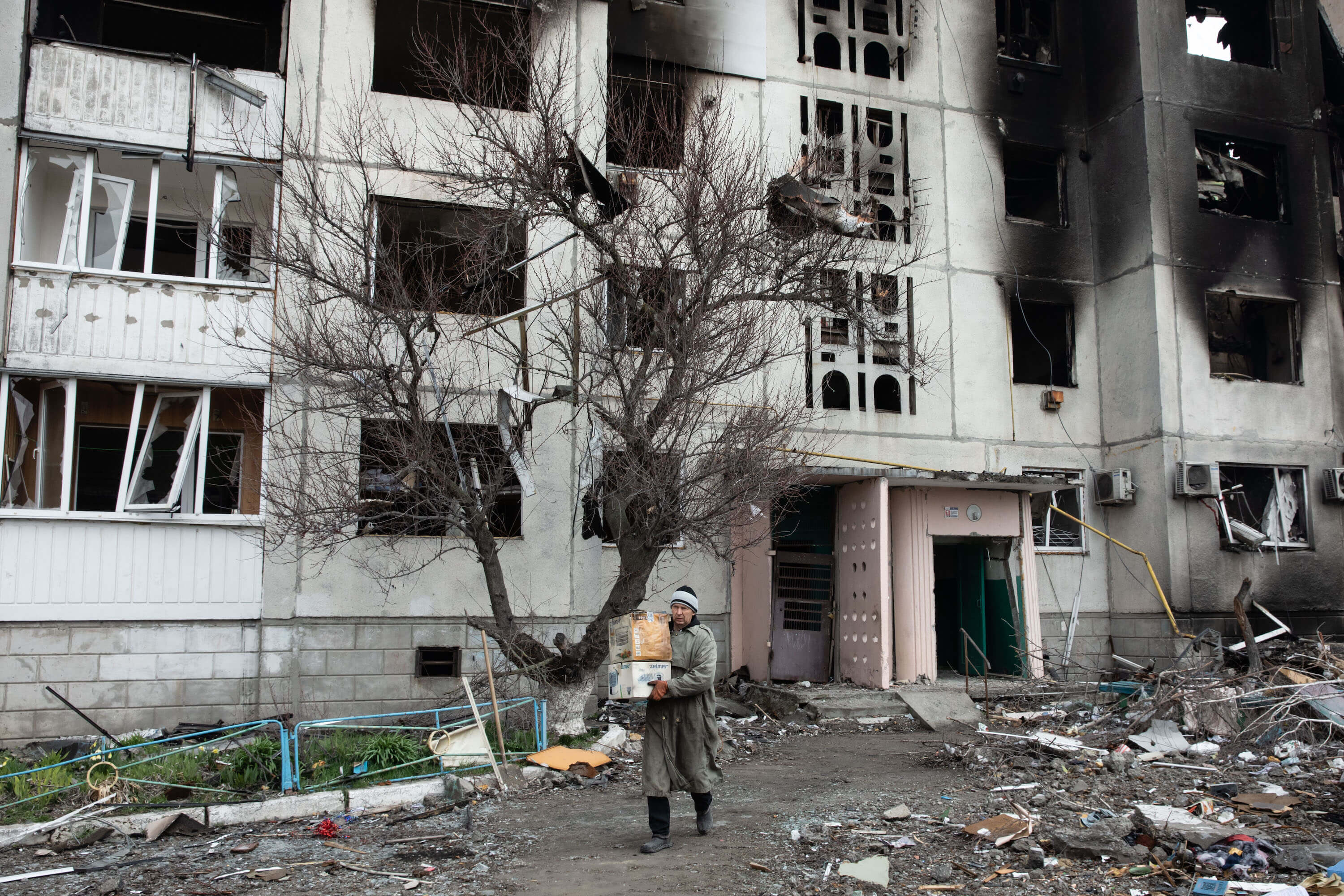
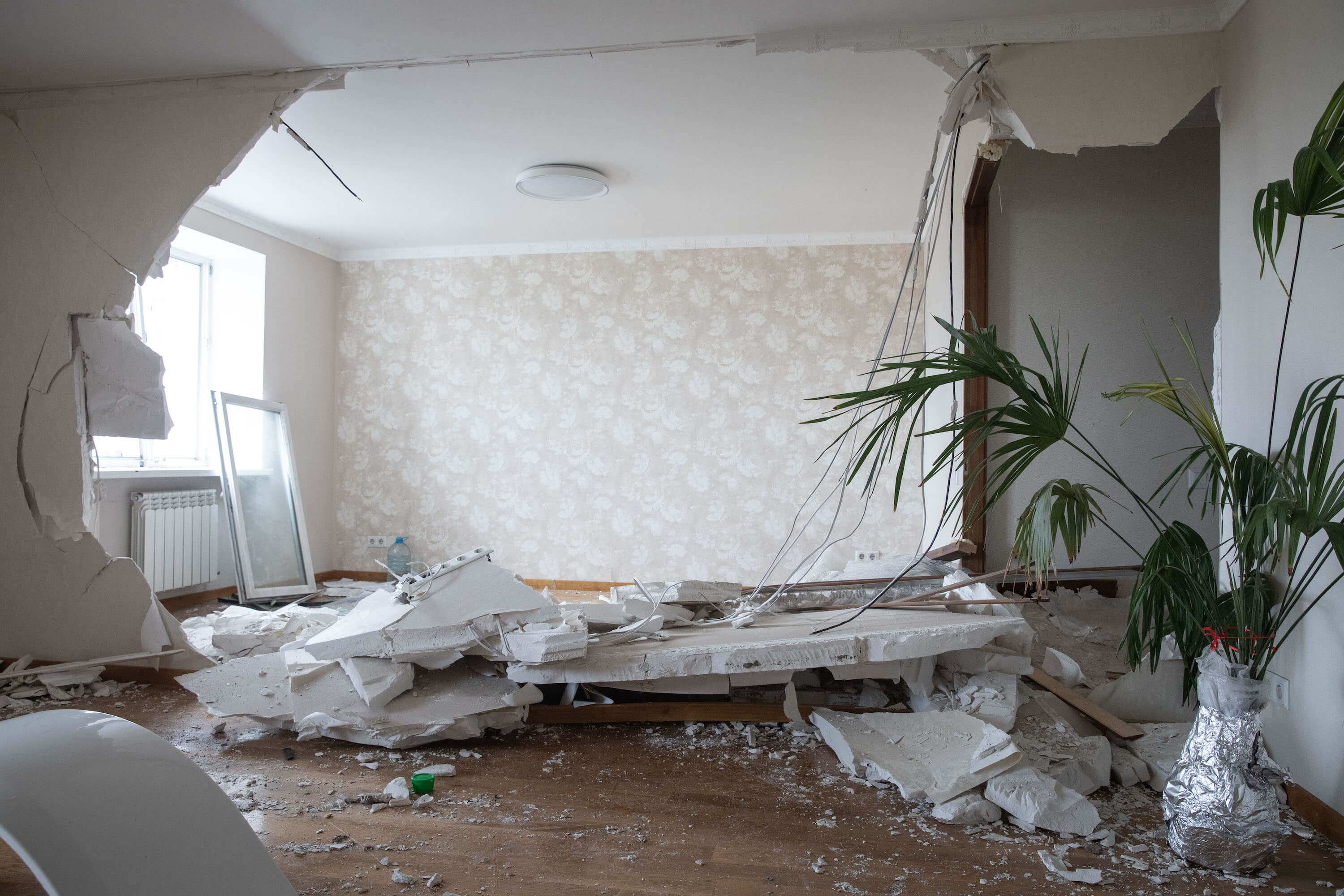
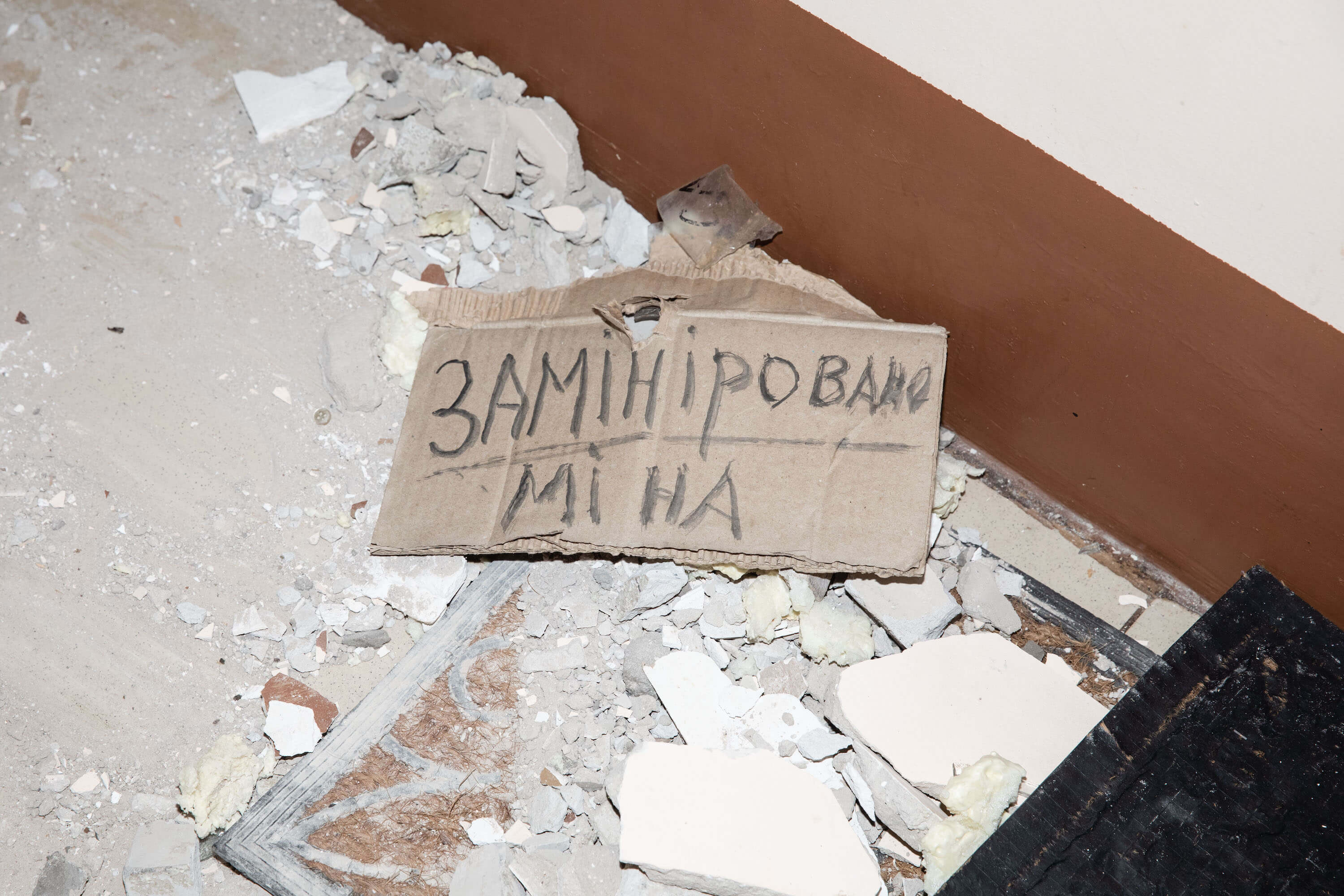
As it goes in other cities as well, the Territorial Defence Forces tie the looters up to the pole. The residents protected their houses with words, writing «Mined» on gates and doors. The method appeared not so efficient – most flats were broken into anyway. A shop assistant Larysa fought with the looters almost daily, warding them off what used to be her shop. She claims that the robbers were mostly «alcoholics and gypsies», but now there are none of them in Borodianka.
— We chased the last group away to the nearby village yesterday, — she says.
— Why there? — I ask.
— Because they live there. I personally know a lot of them.
On your own
After the liberation, the volunteers supplied the village by bringing its residents bread and hot lunch. But the gas stations are closed, so there is still no fuel in Borodianka or its outskirts.
«Please don’t film me while I dump the diesel,» — a young man holding a canister and a long hose asks me timidly. Then he starts messing about near the charred infantry gas tank. The fuel will be used for an Ukrposhta car which the workers found near the post office. It is missing a window and has V on its sides, but still working.
«I tried as hard as I could to wipe these ugly V’s off, but it’s not complete. You can see them if you look closely,» — says Ukrposhta worker Lina.
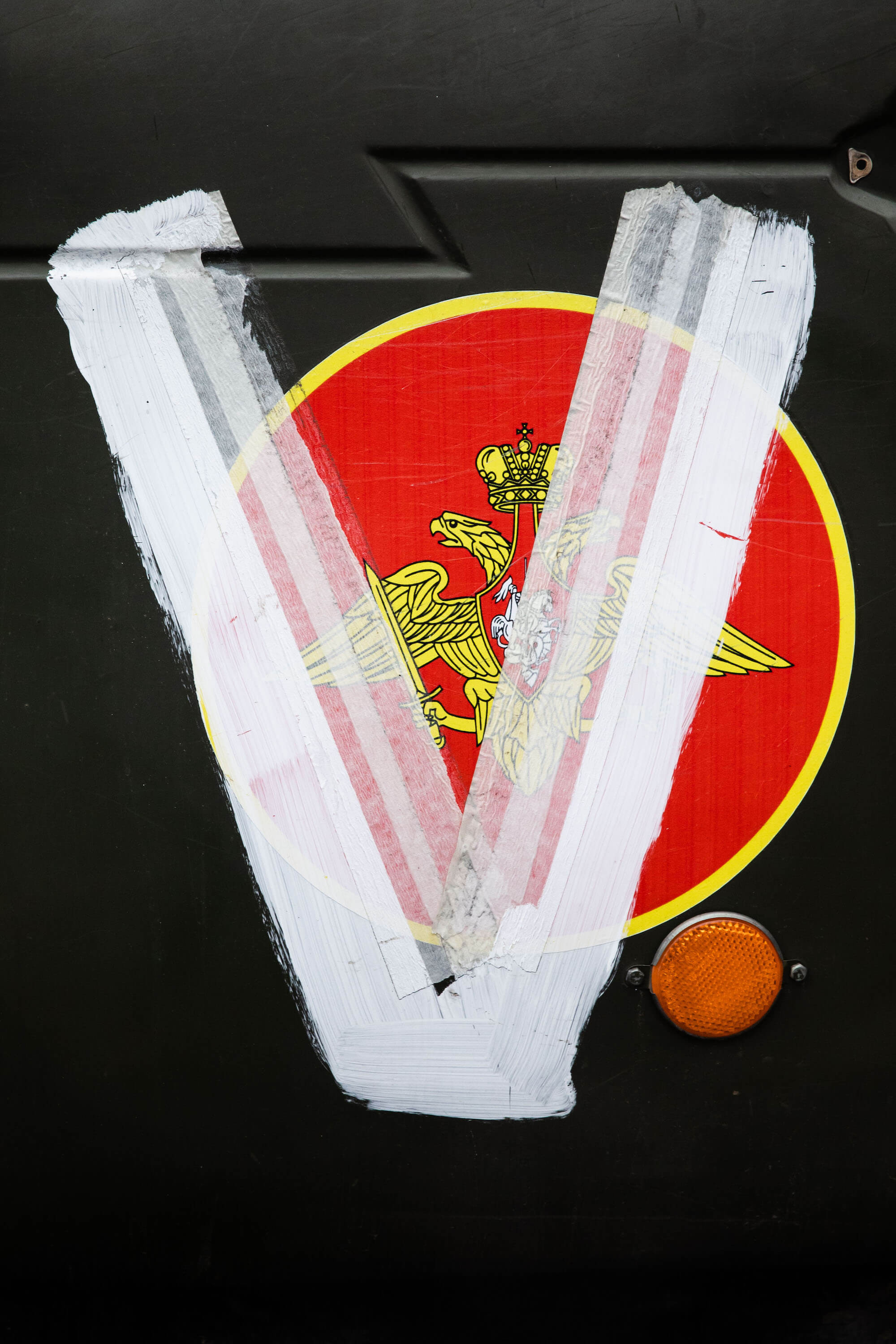
Lina got back to Borodianka two days ago after spending some time in evacuation with her relatives in the village. Short, delicate, with big framed glasses, she is set on reopening the post office. Not much is required: to find a boss who was out of touch for a few weeks, to call in the workers, and to find a new post office building – the old one is burnt to the ground. Lina is sure to sort it out in a few days.
After Iryna Gerashchenko stated that Borodianka has been damaged even harder than Bucha, officials and journalists came here in droves. The residents are complaining: the authorities didn’t tell that it is safe to get back here. Those who returned did it at their own peril; not many of them were aware of the curfew.
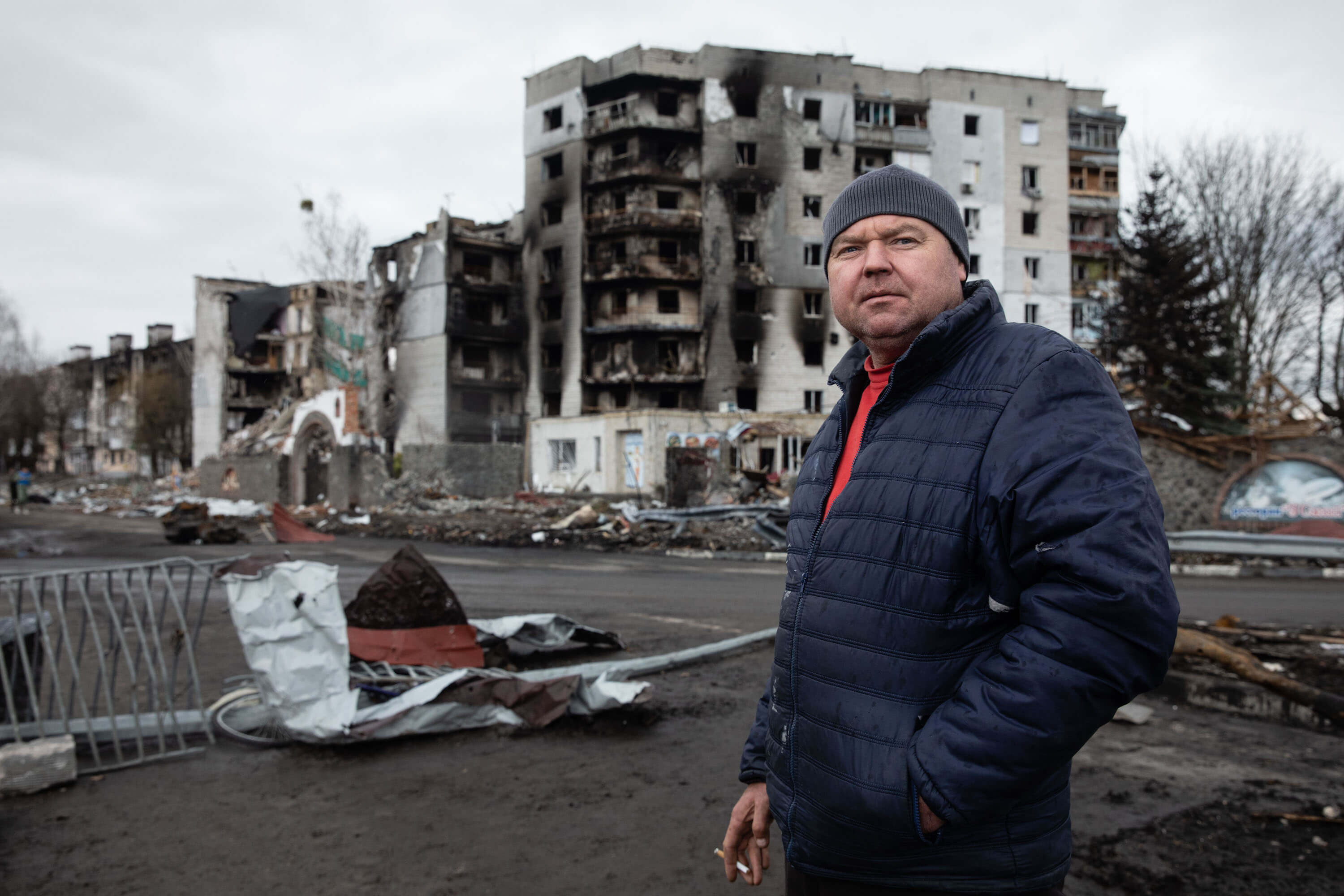
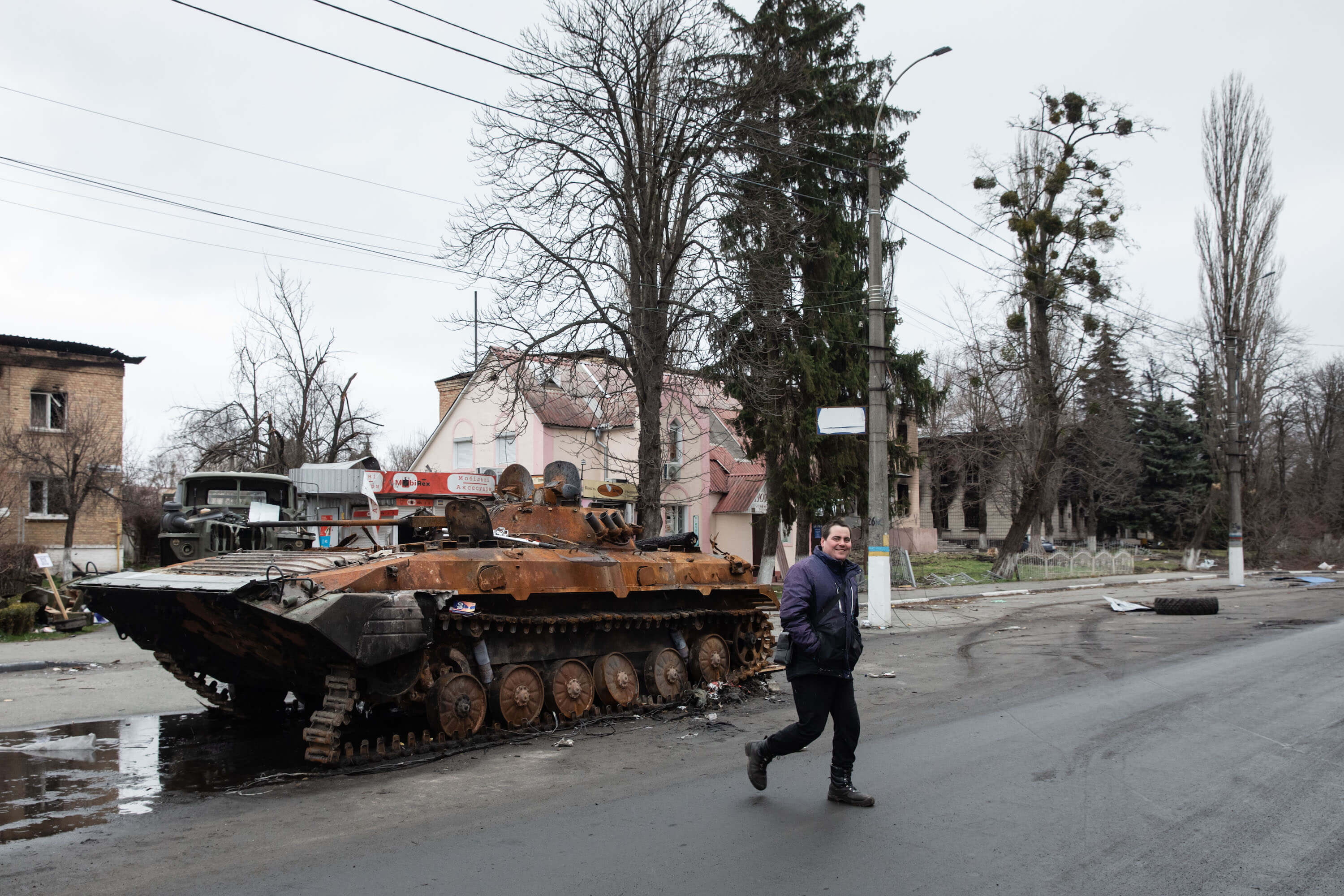
Tetiana is angry: she and her husband returned to Borodianka yesterday, and they still haven’t figured out how they could help.
— There is not that much equipment, not that many rescuers. Why doesn’t anyone organize us and tell where to sort through the rubble? I get it that the city may be mined, but our hospital is intact, why not get those still hiding in cellars settled there?
Deminers are already working for two days in Borodianka, collecting shells left by the Russians, clearing the area. But there are not enough rescuers indeed. They work in small groups on the areas previously checked by the deminers. They sorted what they could manually, but the rest requires the equipment. Rumour has it that a crane is coming to Borodianka from Bila Tserkva, but it’s still unclear when it should arrive.
Awaiting
The residents in Borodianka started burying the deceased a few days ago. Before that, they were lying right on the street as it was in Bucha. It was impossible to bury someone during the occupation – the Russian troops didn’t let anyone approach the corpses. Some had been lying outside for so long that it was hard to identify them. A priest was praying alone for the peace of the souls on the cemetery. He did so while the shelling went on, sometimes lying on the ground.
A priest was praying alone for the peace of the souls on the cemetery. He did so while the shelling went on, sometimes lying on the ground.
The number of the civilians who died during occupation is unknown. It is too early to tell as many corpses are under the rubble.
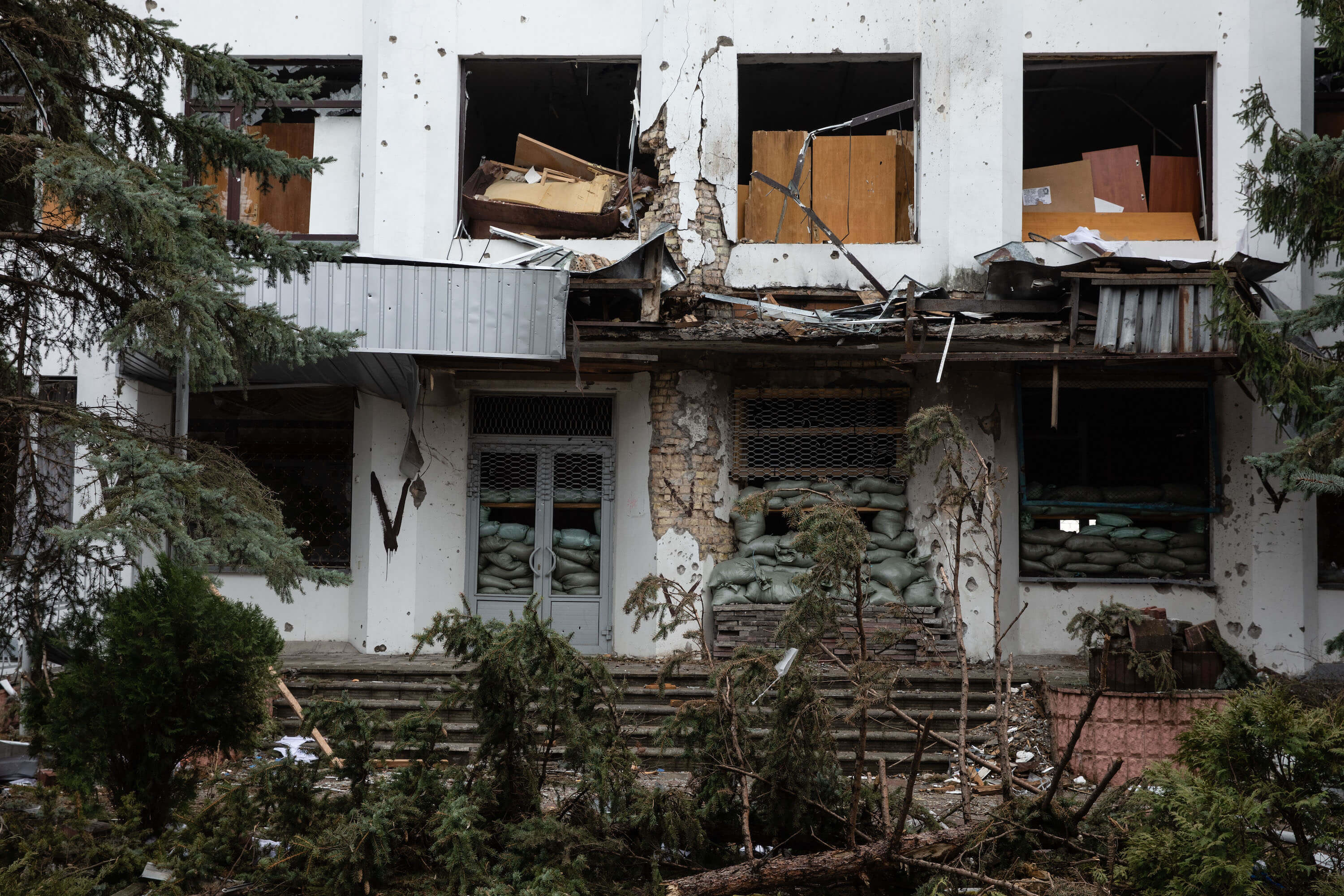
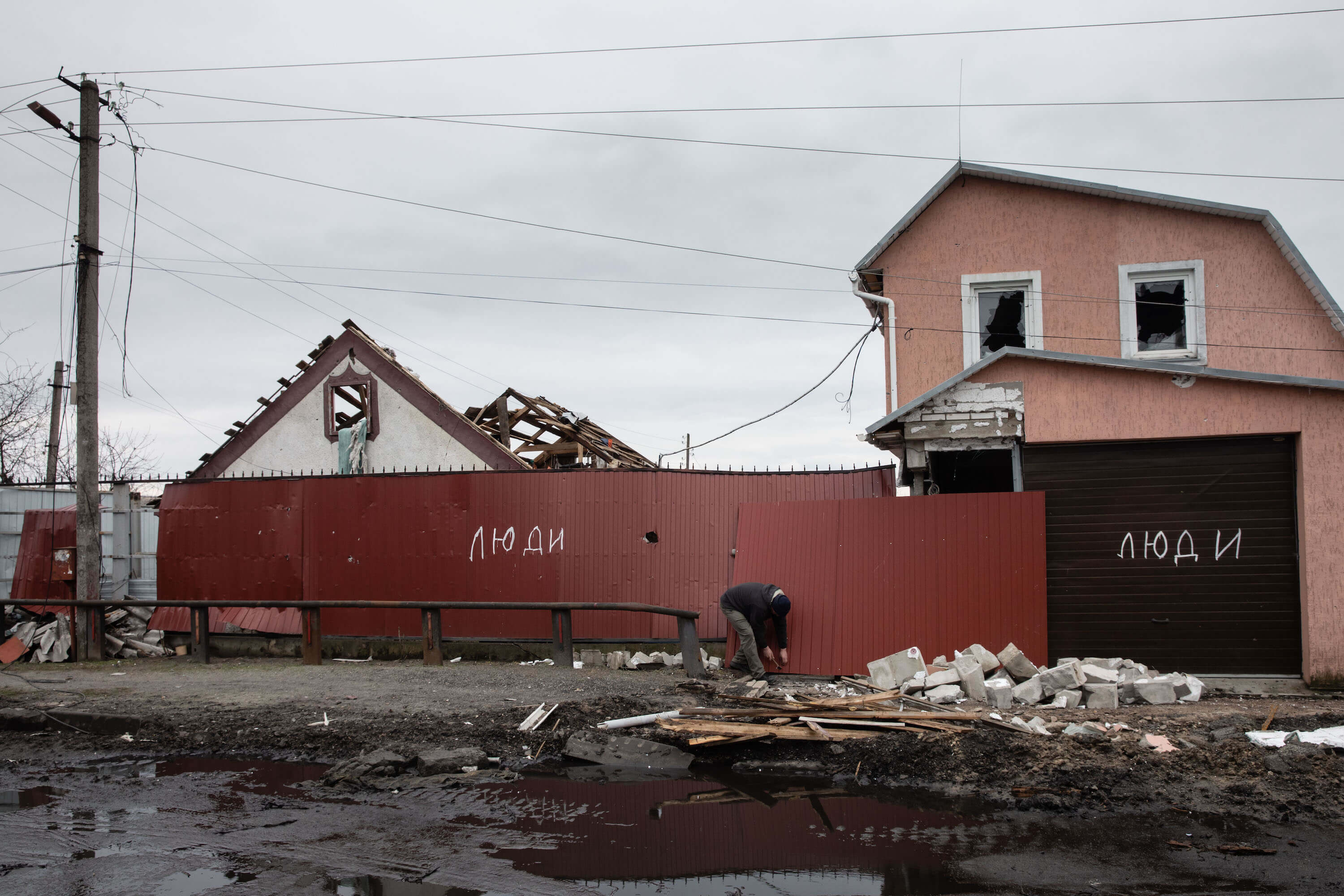
Oleksandr Plahotnyk, head of the Borodianka heating supply service, holds back his tears. On March 2, right after the bombardment, he ordered two tractors to drive to the wrecked buildings. He wanted them to sort through the rubble, there was a chance to rescue people. But the Russian soldiers attacked the vehicles.
There was a chance to rescue the survivors, but the Russian soldiers bombarded the vehicles meant for that.
— We saved only one woman, — he says, — she was holding the fitting stuck out of the wall on the third floor. She jumped down, but wasn’t careful, so we had to take her to the hospital.
A «Buratino» kindergarten has panes and roof destroyed. Near the entrance, there sits Liudmyla covered in blanket. She is watching at the rescuers sorting through the rubble in a house across the street. There, under the piles of concrete, are her sister and nephew. A missile hit the house on March 3, the fire went on for four days afterwards.
— First two days we were crying out of helplessness. Whenever we could, we sorted the debris with our own hands, listening closely whether someone there was alive. But there was only silence.
— Listen, — says a man who’s just come up, — there used to be a restaurant stock, there’s food there. Maybe they are live?
— Stop it, — Liudmyla wearily denies, — a direct missile hit. They had no time to go down there.
During the occupation, Liudmyla helped the Territorial Defence, organized a headquarters in the centre of psychological assistance. The soldiers came there to eat and shower. But for the last two days she’s been here, waiting for the corpses of her loved ones to be retrieved.
— How long are you going to stay here? — I ask.
— Until they are found, — she answers. — I am scared of thinking I won’t be able to bury them.
For a couple of minutes, she stays silent. Then the rescuers get clearing the debris once again.
— Look, — she says. — The guys are on it again. God help them find.
All photos are by Mikhail Palinchak, specially for Bird in Flight
